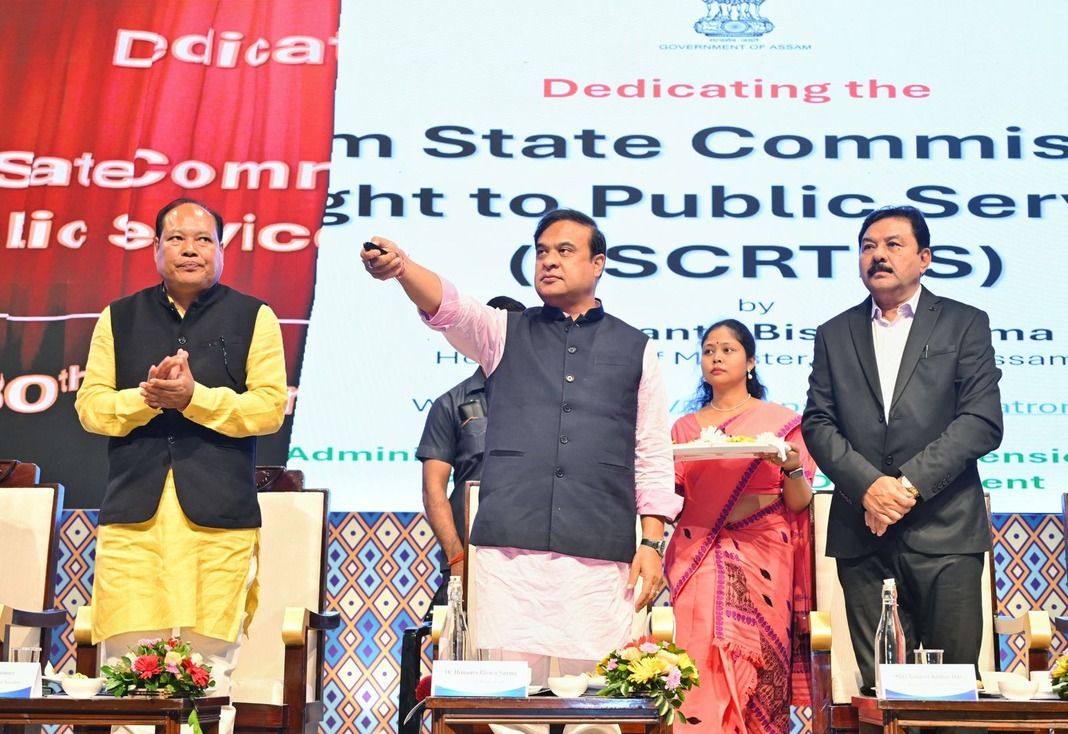Guwahati, Dec 1: Chief Minister Himanta Biswa Sarma on Saturday launched the Assam State Commission for the Right to Public Services, emphasising its role in ensuring greater accountability in the provision of public services.
Speaking on the occasion, Sarma highlighted the transformative role of technology in advancing accountability and said, “Good governance cannot be achieved if the citizens remain unaware of their rights.”
The CM reiterated that it is the government’s primary duty to ensure that public services are delivered in an efficient and timely manner, noting, “The public stands to gain from numerous services, and it is the government’s responsibility to ensure they are provided effectively.”
He pointed out that through the Seva Setu platform, the state government has already recognised 725 subjects as citizen rights, covering 64 government departments and three autonomous councils under the Sixth Schedule.
“The Seva Setu portal provides a clear service delivery timeline, specifying the maximum time frame within which each service should be provided,” Sarma said.
He further mentioned that since the platform’s launch, over 1.56 crore applications have been received, with more than 90 per cent successfully resolved.
“The Right to Public Service Act is now enforced across 34 states, ensuring that citizens’ rights are safeguarded,” he added.
He announced the appointment of retired IPS officer Sujoy Lal Thaosen as the chief commissioner of the commission, with Ranjan Kumar Chakraborty and Bimal C. Oswal appointed as members.
“If public is properly empowered with their rights and services are delivered efficiently, Assam can set a benchmark for exemplary governance,” Sarma asserted.
He urged officials and civil servants to be proactive in implementing these reforms and stressed the need to raise public awareness about the rights available through the Assam State Commission for the Right to Public Services.
The Chief Minister also launched the commission’s handbook and website, reaffirming the government’s commitment to citizen-centric governance, driven by the principle of “Citizen First.” (PTI)




